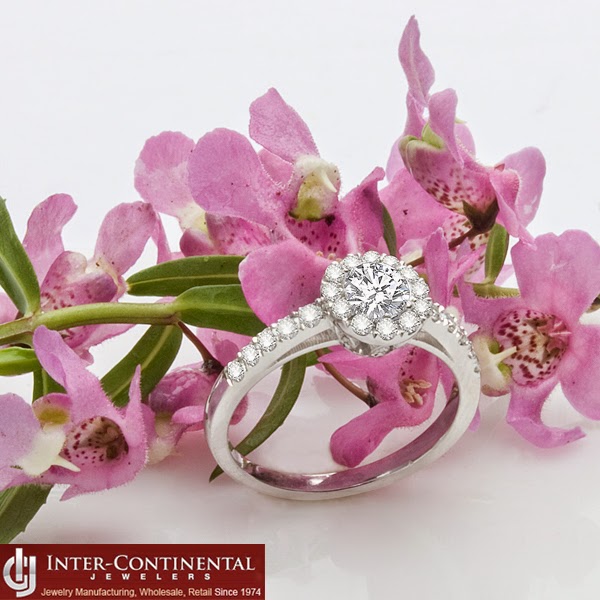What is a blood diamond?
Blood diamonds and conflict-free diamonds are terms you’ll often see when looking for a diamond jewelry piece. There are even movies about them, as the topic has been widely discussed over the last couple of decades. Yet there is still quite a bit of mystery, misunderstanding, and even controversy around blood diamonds. So, let’s go over blood diamonds and conflict-free diamonds, and how they impact the jewelry industry.
What are blood diamonds?
Blood diamond is a term referring to all diamonds for which you can say any of the following:
1. They have been mined in war-torn areas.
2. Slave labor or forced and inhumanely treated and underpaid labor has been used for their mining.
3. The profits made by the selling of these diamonds are used for funding war efforts or terrorist organizations.
All of these are things have been true about large parts of the diamond mining industry for centuries, and activists have been speaking against them for the better part of the 20th century. All this led to an initiative in the late 90s and early 00s spearheaded by the US and the UN to ban blood diamonds.
In particular, the first major step was made in 1998 when the UN officially “acknowledged” that blood diamonds have been used to fund wars and terrorist attacks in Africa. This kickstarted a several-year process of meetings between central and southern African diamond-producing countries, the UN, and other major representatives of the diamond industry. The culmination of this process was the signing of the Kimberley Process.
The Kimberley Process was officially ratified in 2003 and it meant that the World Diamond Council officially banned the mining and trading of conflict or “blood” diamonds from African countries. It was called that way because it was signed in Kimberley, South Africa. The way this agreement is meant to be enforced is through the Kimberley Process Certification Scheme (KPCS) – effectively a certificate that should guarantee that a particular diamond doesn’t come from slave labor or is going to fund wars and terrorist actions.
In the following decade or so after the signing of the Kimberley Process, more countries joined such as Bangladesh, New Zealand, Indonesia, Lebanon, Liberia, and several others between 2005 and 2007, and Panama, Cameroon, Swaziland, and Kazakhstan in 2011 and 2012.
Through the implementation of the process, major diamond markets such as the US and EU repeatedly banned the import of diamonds from conflict areas such as Sierra Leone, Liberia, and others.
What does all this mean for the diamond trade today?
Thanks to the Kimberley Process, only about 1% of diamonds sold globally today are officially dubbed “conflict (blood) diamonds”.
Naturally, a single certificate can’t stop the sale of conflict diamonds altogether and we do know for a fact that diamonds are still being mined in conflict regions – they have to go somewhere.
For example, it’s been established that blood diamond dealers have been using blockchain technology to sell their products online.
Nevertheless, the Kimberley Process has made life more difficult for blood diamond dealers and has forced a lot of them into the black market whereas they used to sell their diamonds directly to big retailers just a couple of decades ago. This has also paved the way for other countries that mine diamonds ethically to ramp up their production.
How to check if a diamond is from a non-conflict zone?
The main way customers have to guarantee the diamonds they are buying are conflict-free is to look for a Kimberley Process Certification Scheme (KPCS). Most major diamond jewelry retailers today will be able to offer this certificate for all their diamonds.
Beyond that, however, the only next step customers have is to inquire about the exact history of the diamonds. A lot of customers inquire about this with the presumption that there is a difference between a diamond mined in Canada and one mined in Zimbabwe – the former is often viewed as “more conflict-free” than the latter. Whether that’s the case, however, is a complicated matter.
The blood diamond myth – is it really as simple as buying “conflict-free”?
So, why are blood and conflict-free diamonds so controversial? For one, many African countries and major diamond exporters today still have conflict-free diamonds, but customers still see diamonds exported from them as “less conflict-free” even if they have a Kimberley Process Certification Scheme (KPCS).
Such implicit biases can hurt these countries, and this has led many to believe that the Kimberley Process is just a cynical way for countries to bump up the prices of their diamonds while stiflingthe competition.
Are conflict-free diamonds worth it?
The Kimberley Process always was and likely always will be a controversial topic. Did it “fix” the diamond mining industry? Certainly not. Did it even have some negative side effects? Yes. But it also seems to be a step in the right direction when it comes to at least partly limiting the sale of blood diamonds.
On the other hand, 99% of diamonds come from the legitimate source which employs over one million people in the diamond industry. This provides jobs and stability to families in Africa and India and in turn, benefit the economies of these countries. These artisans who work in the diamond industry are able to provide better life for their families and send their children to school and can look for a better future for their families.
When Buying a Diamond
When buying a diamond, it’s essential to ensure that the retailer you’re purchasing from only offers conflict free stones and know where their stones come from. Intercontinental Jewelers are committed to offering conflict free mined diamonds as well as lab-created diamonds – both excellent choices for ethical diamond jewelry.
If you’re in the market for diamond jewelry, why not check out Intercontinental Jewelers and the great range of jewelry they have on offer? Click here to browse their collections.






Comments
Post a Comment